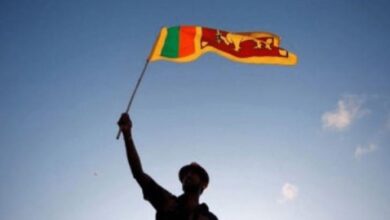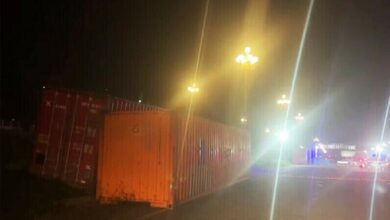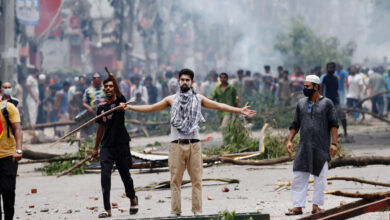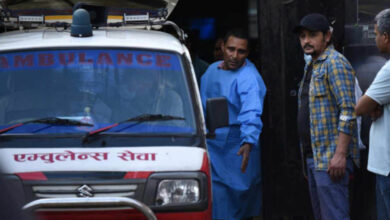Nepal to request China for waiver of Pokhara airport construction loan
Ministries have come up with a long wish list for prime minister’s China visit next month.

By Anil Giri
The government’s key ministries are busy preparing their own agendas in what would be a wish-list from the Nepali side to be discussed during the Prime Minister Pushpa Kamal Dahal’s China visit next month.
Dahal is scheduled to travel direct from New York to Hangzhou, China on September 22. He will attend the opening ceremony of the 19th Asian Games to be held in Chinese city on September 23 after completing his engagements in New York.
He will fly to China after addressing the UN General Assembly on September 21. As Dahal also has to attend the Sustainable Development Summit to be held on September 18 and 19 in New York, Dahal and the Nepali delegation will leave Kathmandu on September 16.
The prime minister will participate in the SDG Summit as the chair of the least developed countries and will meet foreign leaders and officials on the sidelines of the UN General Assembly.

In China, Dahal will have political meetings and engagements on September 23, 24 and 25 whose schedules are yet to be finalised, according to government officials.
After completing his engagements in Hangzhou, Dahal will fly to Beijing where he will meet Chinese President Xi Jinping, Chinese Premier Li Qiang as well as other high-ranking officials.
In order to prepare the agenda of the visit, which is being keenly followed in the political, strategic and diplomatic circles in Kathmandu, the Ministry of Foreign Affairs on Friday held extensive consultations with the line ministries. It was chaired by Foreign Minister NP Saud. Several other ministry-related consultations too were held by Foreign Secretary Bharat Raj Poudyal along with senior officials in the China division.
Two senior officials at the Ministry of Culture, Tourism and Civil Aviation told the Post that they are all set to make a request to China to write off the loan provided for the construction of the Pokhara international airport. The airport has already come into operation from early 2023, but is struggling to make enough income needed to pay off the loan. Nepal plans to ask the northern neighbour to convert the $215.96 million soft loan issued by China’s EXIM Bank in March 2016 into a grant.
“We are going to make a formal request to the Ministry of Foreign Affairs to raise this matter seriously,” one of the officials told the Post on the condition of anonymity. “The officials from the Tourism Ministry and the Civil Aviation Authority of Nepal have already drawn the attention of the foreign ministry about their proposal. We are sending a written proposal to this effect to the foreign ministry next week.”
The officials said even the prime minister is concerned about the future of the Pokhara airport, so the matter should figure prominently during his China visit.
The project was implemented on an engineering procurement and construction model. A senior team from the Chinese bank is also coming to Kathmandu on August 28 and when it meets with Nepali officials, the issue of Pokhara airport will be raised, according to officials at the Ministry of Culture and Civil Aviation.
Due to a lack of international flights, the Pokhara airport, which China unilaterally termed as a project built under the framework of Belt and Road Initiative (BRI), has been operating domestic flights only. The government has declined to consider it as a part of the BRI because it was never discussed while negotiating the loan for the project.
Besides seeking a waiver of the airport loan, the Ministry of Tourism is also going to ask China to write off the loan Nepal had taken to buy five Chinese-made aircraft.

In November 2012, Nepal Airlines had signed a commercial agreement with the Aviation Industry Corporation of China (AVIC), a Chinese government undertaking, to procure six aircraft—two 56-seater MA60s and four 17-seater Y12es. As part of the deal, China provided grant and concessional loan assistance worth 408 million yuan (Rs6.67 billion) to purchase the six aircraft.
Nepal Airlines has repeatedly said that the Chinese-made planes were causing heavy losses ever since they were acquired, and that it wants to get rid of them to cut further losses.
The Finance Ministry is the owner of the planes and Nepal Airlines is the operator. The ministry gave a green signal to Nepal Airlines to lease out or sell the planes in March 2021. “After going through several options and alternatives on how to get rid of the five aircraft, we have now decided to seek a loan write-off that was extended by the Chinese side,” said a senior official at the ministry of tourism.
The five condemned planes—three 17-seater Y12e aircraft and two 56-seater MA60 aircraft—are parked at the remote parking bay on the eastern side of the Tribhuvan International Airport in Kathmandu. A sixth aircraft crashed in Nepalgunj and is unflyable.
Besides these agendas, the ministry is also seeking a shorter air route for the Kathmandu-Imphal-Kunming-Hong Kong flight that will cut out 115 nautical miles from the aerial distance. The proposal of hangar procurement is also part of the agenda.
Prime Minister Dahal has already mentioned in several mass meetings that during his China visit, he will take up the construction of two cross-border transmission lines, and explore the possibility of signing a power trade agreement with the northern neighbour. The prime minister is also preparing to allow Chinese investment in at least one hydropower project to facilitate power trade with China. He wants this in order to silence those who say not all hydel projects should be given to India.
The prime minister has said some practical cooperation under the BRI will also be discussed, whereby he will seek a Chinese grant in order to develop a signature project.
Dahal said cooperation in agriculture and energy will be given top priority during his visit, including the construction of some north-south road corridors. On Friday, during the consultation at Ministry of Foreign Affairs, senior officials at the Ministry of Physical Infrastructure and Transportation had proposed to seek Chinese assistance in the construction of the Dhangadhi-Khutiya-Dipalyal-Chainpur-Uraibhanjhang, Hisla-Surkhet, Tokha-Chhahare, and Kimathangka-Leguwaghat roads and an upgrade of the Araniko Highway.
During Friday’s consultations, the Ministry of Energy had proposed the construction of the cross-border transmission lines and one hydropower project, according to an official who was present at the meeting.
Likewise, the Ministry of Finance proposed banking cooperation between Nepali and Chinese banks. Construction of the infrastructure in Korola Pass, opening more border and trading points between Nepal and China, speeding up border infrastructure, cooperation in the health including seeking physical support from China for the upgradation of health facilities, vehicle support from China for security agencies were the other matters discussed in Friday’s meeting, according to the multiple officials present.
“We have received very good feedback and proposals, but they are yet to be finalised,” said minister Saud. “Once all line ministries forward their proposals in writing, we will give them a final shape,” he added.
After foreign ministry completes the home work, the Prime Minister’s Office and the prime minister himself will undertake several rounds of consultations with Cabinet members, former prime ministers as well as the ruling and opposition leaders.
“We are still preparing and discussing the visit’s itinerary,” said Bishnu Pukar Shrestha, Nepal’s ambassador to China. “We should discuss and review what had been agreed and discussed in the past.”
“If China is serious about the BRI, it should fund a big project through grants. China should be ready for energy cooperation and trading with Nepal and as its next door neighbour, China should extend support to Nepal in a big way so that we can meet our developmental aspirations,” Shrestha told the Post from Beijing over the phone.
Anil Giri is a reporter covering diplomacy, international relations and national politics for The Kathmandu Post. Giri has been working as a journalist for a decade-and-a-half, contributing to numerous national and international media outlets.




